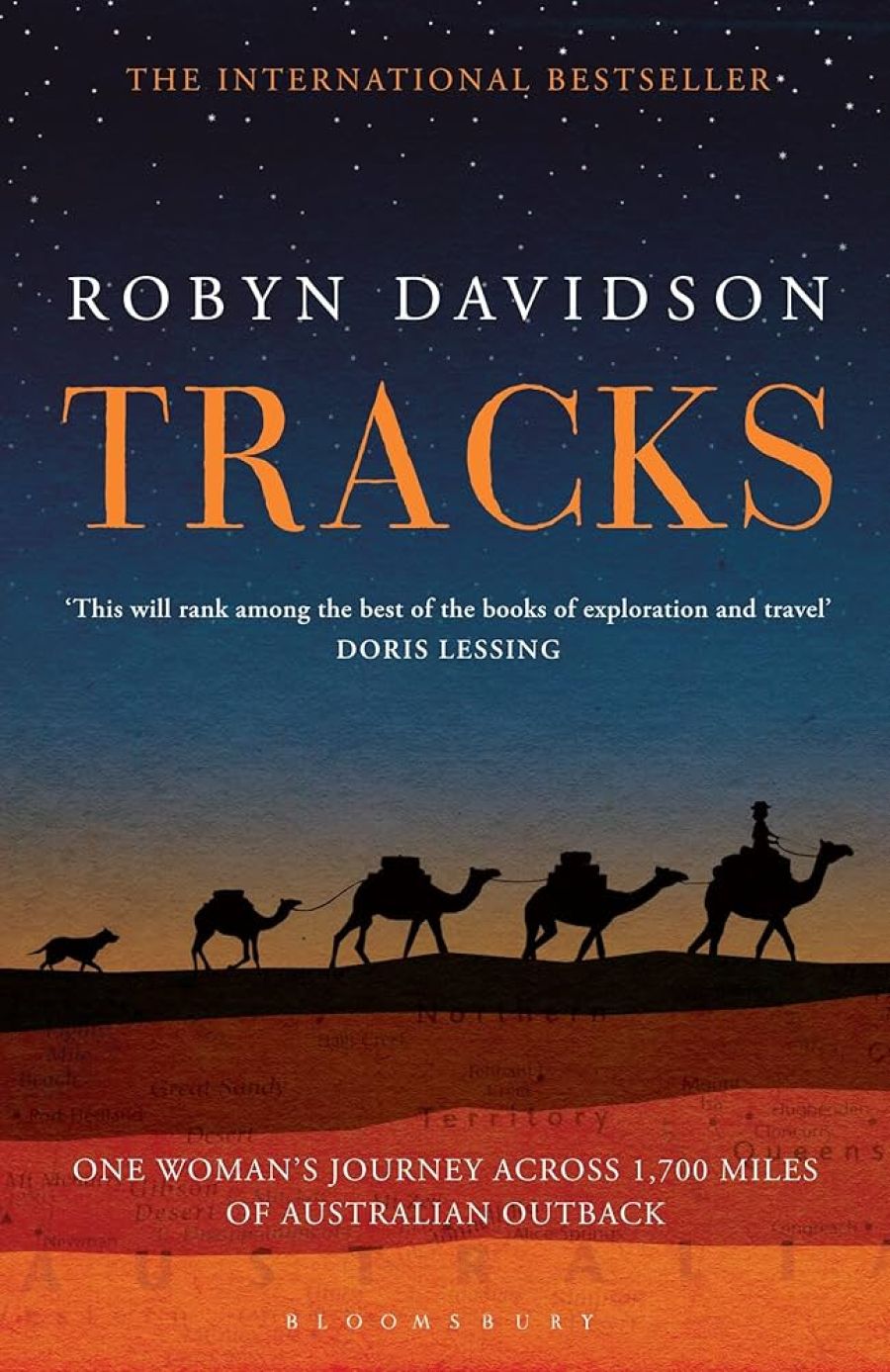
- Free Article: No
- Contents Category: Environment
- Review Article: Yes
- Article Title: Learning from the Land
- Online Only: No
- Custom Highlight Text:
But why would anyone want to do it? This seems a reasonable question to ask about Robyn Davidson’s self-imposed ordeal: Davidson taught herself from scratch to tame and train camels, then travelled with four of them and one dog across 1700 miles of desert from Alice Springs to the coast of Western Australia. Tracks is the book she wrote about it.
- Book 1 Title: Tracks
- Book 1 Biblio: Jonathan Cape, $17.95 pb, 256 pp
- Book 1 Cover Small (400 x 600):

- Book 1 Cover (800 x 1200):

While it may not answer the question to every reader’s satisfaction, Tracks has much to recommend it. Apart from its significance the story is intrinsically interesting, even exciting. The non-specialist reader will learn a lot about camels and even more about the frontier existence of the whites and blacks who live in the harsh and isolated central desert. The comparison between the two races is one of the sub-themes of the book; the whites lose, badly.
Although Davidson is sometimes able to find among her own race true friendship – the closeness of which she says is peculiarly Australian – she is much more often exposed to crude, small town racism and sexism, to the truly mortifying oafishness of the Australian tourist, and to the intrusion of commercialism – the inevitable desire of others to make a buck out of her experiences. The Aborigines, on the other hand, behave impeccably: with tolerance, patience, generosity and, where they can trust, with friendship. It seems to Davidson (and to the reader) that this behaviour is the manifestation of a harmony of spirit that comes from their relationship with their land. The land provides their lives not only with religious meaning but with social arrangements and practical support, a complex and ordered security of being at present unknown to our fragmented white society.
Davidson’s narrative is wonderfully descriptive; the smallest details of administering antibiotics to a sick camel are set out with the same engaging clarity as her evocation of the brilliant exotic beauty of the Australian desert. The theme is authentically romantic: the journey, a search for identity through communication with nature, is in the Wordsworthian mode.
Happily, her treatment of this theme avoids pretension. A near mystical description of the exhilaration of dawn in the desert is followed by a matter of fact account of treating a case of cystitis brought on by bathing naked in freezing bore water. Because Davidson’s loftiest moments are usually punctured by self- deprecating humour, the reader is convinced that she is dealing with a real, sensible and therefore truly interesting person rather than a hippie nut trying to short circuit eastern mysticism.
Well, why did she do it? She says she wanted to learn more about Aborigines and also she’... had been sick of carrying around the self indulgent negativity which was so much the malaise of my generation, my sex and my class’.
She becomes obsessed by the bizarre task she has set herself. The camels, on whom she relies to work through the ordeal, become the focus of her obsession. As with a religious obsession, she endures months of preparatory torment and self-doubt while she finds the camels, trains them and trains herself. She persists because she wants to establish something about the possibilities of human nature: that we can take control of our lives and change them. By doing something totally outside her previous experience, something physically and psychologically very difficult, she succeeds in changing herself, her life.
Her determination to broaden our human possibilities stems from her discontent with her female identity: ‘It was essential for me to develop beyond the archetypal female creature who from birth had been trained to be sweet, pliable, forgiving, compassionate and doormattish.’ Anyone who recognises that aspiration will like this story; anyone who doesn’t will profit from it.


Comments powered by CComment